The Sustainability in the Food Industry Award, presented by The Shelby Report, honors trailblazers reducing environmental impact, supporting communities, and innovating across the food supply chain. This year, we’re spotlighting nominees in four key categories: Retailer Initiatives (e.g., energy-efficient stores and waste reduction), Vendor & Supply Chain Innovations (e.g., carbon-neutral logistics), Sustainable Workforce (e.g., employee training for green practices), and Collaborative Impact & Industry Leadership (e.g., industry-wide coalitions). These forward-thinking companies and organizations are driving real change in how we grow, package, and deliver food – proving sustainability isn’t just a trend, it’s the future.
Discover this years innovators leading the charge in food industry sustainability – from farm to table.
2025 Sustainability Award Winners
-
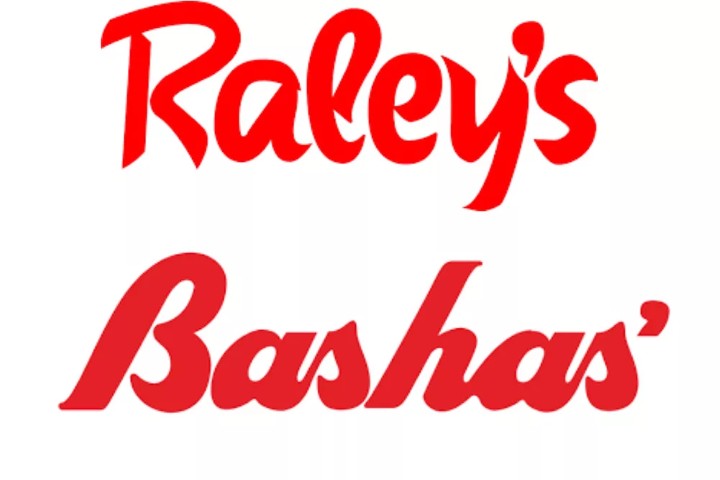 2025 Sustainability in the Food Industry
2025 Sustainability in the Food IndustryThe Raley’s Companies
Chandler, Arizona, The Raley’s Companies
Read MoreFor more than 90 years, The Raley’s Companies has served communities with a sense of purpose, responsibility and care. Its vision is to nourish communities and the planet. It’s a guiding principle embedded into every decision the company makes, from the farms where products are sourced to the way stores are powered.
Sustainability is a companywide commitment to creating a future where people and the planet thrive together.
Reducing food waste and fighting hunger: The Raley’s Companies believes food should nourish people, not landfills. About 17.5 million pounds of food was donated through its Food Rescue Program in the past year to fight hunger in communities. Any unsalvageable organic waste is diverted to Divert and other local partners to be transformed into renewable energy and reusable byproducts. (Coming soon to Bashas’ locations as well.)
Recycling and waste diversion: The Raley’s Companies is proud to keep valuable materials in circular use and out of landfills. About 4.5 million pounds of materials are recycled annually.
Renewable energy and emissions reduction: The Raley’s Companies operational footprint is being transformed through clean energy adoption and efficiency. Eighteen stores and facility locations operate with solar panel grids, with 30-plus additional installations planned in the coming year.
Energy-efficient store design in remodels and new builds includes LED lighting, motion sensors and advanced refrigeration systems to cut energy demand. Ongoing logistics optimization reduces fuel consumption and emissions across the company’s fleet.
Supporting responsible agriculture: The Raley’s Companies is committed to sourcing with care – 100 percent of Raley’s and Bashas’ private label eggs are cage-free, ensuring better animal welfare standards and improved supply chain sustainability.
Expanding sustainable infrastructure for communities: The Raley’s Companies values the environmental choices of shoppers and aims to make them easier. Forty-plus electric vehicle charging stations have been installed at stores, supporting the adoption of clean transportation. These actions generate environmental and community benefits.
Millions of pounds of food rescued means fewer greenhouse gas emissions from decomposing waste and more nourishment for families in need. Renewable energy and efficiency investments cut operational emissions while lowering long-term costs.
Recycling keeps resources in circulation, reducing extraction of virgin materials. Ethical sourcing and animal welfare commitments reflect the company’s belief that sustainability starts at the source.
-
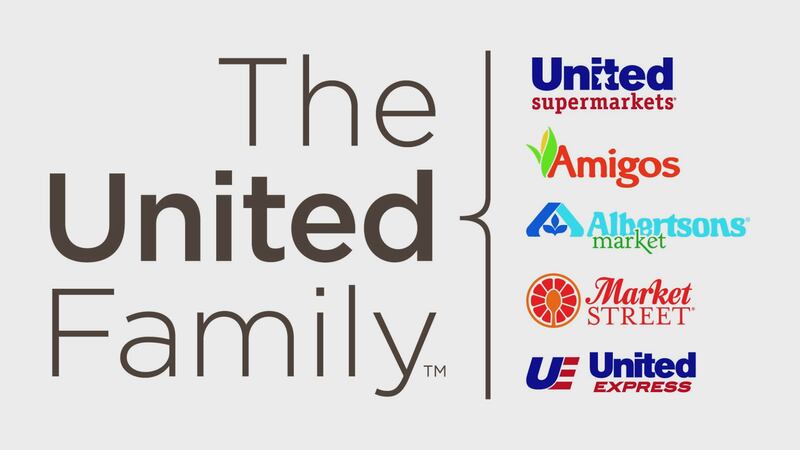 2025 Sustainability in the Food Industry
2025 Sustainability in the Food IndustryThe United Family/United Supermarkets
Lubbock, Texas, United Supermarkets
Read MoreThe United Family/United Supermarkets has consistently demonstrated that a successful grocery retailer can also be a powerful force for environmental stewardship, social responsibility and community well-being.
Sustainability is woven into the fabric of The United Family’s operations. In 2024 alone, the company:
- Diverted more than 1.5 million pounds of food waste from landfills through the Organix Recycling Program.
- Recycled more than 1 million pounds of plastic and 16,552 tons of cardboard.
- Collected and sold 266,817 pounds of yellow grease for conversion into biofuel.
- Upcycled nearly 617,000 wood pallets, ensuring valuable resources were reused.
- Retrofitted to LED lighting in 19 stores.
- Recycled more than 4,400 ink and toner cartridges and prevented nearly 800 electronic devices from reaching landfills.
- Encouraged customers to adopt more sustainable habits by selling 210,526 reusable bags to reduce plastic pollution.
These initiatives reflect a holistic approach to waste reduction, energy efficiency and long-term environmental care.
The United Family recognizes that sustainability is also about empowering
people:- With more than 18,000 employees, the company invests heavily in training and support, including its store leadership development program, where 57 percent of graduates are people of color, strengthening diversity in leadership.
- Through the United We Care program, more than $273,000 has been invested since 2007 to provide emergency support for employees in crisis.
- Contributions of more than $90,000 to college savings plans demonstrate a commitment to helping employees and their families secure brighter futures.
The United Family’s impact extends deeply into the communities it serves:
- 977,827 pounds of food donated to local food banks, with 100 percent of stores participating in food donation programs.
- 10,128 pounds of pet food donated to the Humane Society, supporting animal welfare.
- More than 7,500 hours of community service by employees.
- Partnerships with law enforcement and nonprofits to combat human trafficking through the Truckers Against Trafficking and the Texas Blue Sand Project.
These efforts embody a deep understanding that a sustainable business must also nurture resilient, thriving communities.
The United Family’s sustainability strategy is not a single initiative – it’s a comprehensive recipe for change. From diverting waste and cutting emissions to investing in people, the company demonstrates that grocers can lead the way in corporate responsibility.
-
 2025 Sustainability in the Food Industry
2025 Sustainability in the Food IndustryTive
Boston, Massachusetts, Tive
Read MoreThe story of the supply chain and logistics visibility market is just beginning to be written. Some of the world’s largest companies, across a variety of industries, continue to use passive loggers or legacy solutions such as EDL for cargo monitoring.
Many of these businesses have no idea where their cargo is at any given moment, cannot detect its condition and have no clue if their cargo is safe from thieves.
In 2015, Tive was created to combat these issues by offering modern IoT technology and cloud platform software to provide unlimited, real-time visibility for the location and condition of every type of shipment – whether sent by truck, rail, air or ocean.
Tive takes a leadership role in promoting sustainability and green practices across the supply chain. How it ships matters – and how its customers ship matters, too. Environmental, social and governance principles are core to the business strategies of Tive and its customers.
The Tive Green Program is built on a simple yet powerful idea – to incentivize customers and receivers to return used Tive trackers to the company instead of discarding them.
This initiative serves several purposes. First, it reduces electronic waste by renewing and recirculating trackers and reducing the demand for new device production.
Second, this program gives customers an opportunity to be part of a sustainable cycle, which helps them contribute to their own ESG initiatives and priorities.
As part of Tive’s ongoing commitment to sustainability via the Green Program, 137,453 trackers were returned for recycling and reuse in the first half of 2025. That was a 59 percent year-over-year increase.
Sustainability starts with visibility. Tive helps its customers reduce their Scope 3 emissions by:
- Providing traceability – Tive trackers report the exact location and condition of shipments at all times, which helps minimize transit time and carbon emissions.
- Saving shipments – Real-time alerts enable shippers to mitigate disruptions, or avoid them altogether, thereby reducing transit time and preventing waste.
- Reducing truck “dwell” times – When a container is detained or delayed, Tive helps shippers quickly detect it and leverage strategic appointment scheduling, decreasing idling time.
- Eliminating empty miles – It identifies round-trip opportunities across
-
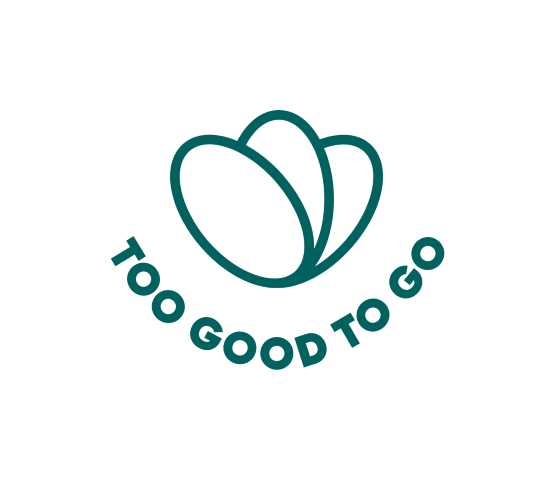 2025 Sustainability in the Food Industry
2025 Sustainability in the Food IndustryToo Good To Go
New York, New York, Too Good To Go
Read MoreToo Good To Go is a global social impact company on a mission to inspire and empower everyone to fight food waste together. It operates the world’s largest marketplace for surplus food, connecting more than 120 million registered users with 180,000-plus partners – including leading grocery chains, local retailers, bakeries and restaurants – across the United States and 18 other countries.
Since launching in 2016, Too Good To Go has helped save more than 480 million meals from going to waste globally (equal to about 1,058,303,423 pounds of food).
This collective effort has prevented more than 1.3 million tons of CO2e emissions, 405 billion liters of unnecessary water use and 1.4 billion m² of land use annually – demonstrating that fighting food waste is one of the most powerful levers for climate action.
Its signature solution, the Surprise Bag, makes impact simple, scalable and measurable, giving consumers a tool they can integrate into their daily lives for positive climate action. That sense of empowerment not only drives adoption but also builds lasting habits that make sustainability part of everyday culture.
How it works: Through the Too Good To Go app, consumers can buy surplus food via Surprise Bags directly from restaurants and food retailers at about one-third of the original value. This provides businesses with an easy, zero-cost way to recover value from food that would otherwise be discarded, while giving consumers access to affordable, high-quality meals without sacrificing sustainability.
In the U.S. specifically, Too Good To Go’s network of 17,000 partners and 15 million users has saved more than 26 million meals from going to waste. This means that through Surprise Bag pickups it has avoided more than 71,185 tons of CO2e in the U.S.
Too Good To Go is now active in more than 30 major metro areas nationwide, from New York to Los Angeles, and saving an average of at least one million meals every month. Too Good
To Go believes the real competition is the bin. By giving people and businesses a way to act today, it’s proving that climate action doesn’t have to be abstract or inaccessible; it can start with what’s on the plate.
-
 2025 Sustainability in the Food Industry
2025 Sustainability in the Food IndustryTops Friendly Markets
Buffalo, New York, Tops Friendly Markets
Read MoreSocial responsibility and sustainability have always been at the core of Tops Friendly Markets’ mission, upholding standards that ensure it reduces environmental waste and energy consumption while providing customers with sustainably sourced, high-quality products.
Last year, its efforts in recycling and waste reduction resulted in:
- 232 tons of used cooking/fryer oil recycled; • 394 tons of plastic bags and stretch film recycled;
- 12,500-plus tons of cardboard, newspapers and office paper recycled;
- 372 tons of organic scraps recycled. Donations are made to local wildlife conservation organizations, which also help foster educational opportunities for customers and associates. Composting efforts continue to expand at numerous store locations; and
- 1.2 million-plus gallons of diesel fuel conserved each year.
Tops has reduced its energy consumption throughout its footprint by upgrading its store’s interior lighting to LED lights/fixtures through a program with Lime Energy Services.
Today, 60 stores throughout the chain, as well as its corporate offices and mailroom, have been converted from traditional fluorescent lighting to LED lighting. This saves about 12.9 million kWh of electricity. In addition, new vapor-tight LED fixtures have reduced energy consumption in its freezers by 69 percent.
-
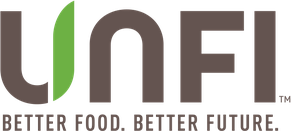 2025 Sustainability in the Food Industry
2025 Sustainability in the Food IndustryUnited Natural Foods Inc.
Providence, Rhode Island, United Natural Foods Inc.
Read MoreAs North America’s premier grocery wholesaler, UNFI is committed to delivering value to its partners and communities while fostering long-term sustainability across its business. The company believes that by improving access to quality food, empowering associates to give back and protecting the planet, it is building a better future for all.
By connecting thousands of suppliers and retailers, UNFI works to provide continuity from farm to shelf, drive product quality and innovation and protect natural resources. It promotes collective action and facilitates industrywide collaborations to reduce environmental footprints at scale.
Through the UNFI Climate Action Partnership, UNFI provides resources and support to help suppliers measure, manage and minimize their climate impact, in addition to helping them differentiate based on their climate strategies and leadership.
To date, more than 90 suppliers have enrolled in the program. In 2025, UNFI convened its first annual Climate Summit at Natural Products Expo West, where attendees representing 49 companies explored ways organizations can navigate sustainability initiatives and climate goals to drive business growth.
UNFI is committed to more efficiently serving its customers and suppliers. It believes sustainability plays an important role in the ability to do so.
UNFI recently completed the installation of its largest solar array to date at its distribution center in Riverside, California. The capacity of this system is double that of its next largest solar array and is projected to meet 80 percent of Riverside’s energy needs. It also is delivering improvements in fuel efficiency through the implementation of new technology – from dispatch to routing. Fiscal year 2024 efforts led to a 5 percent reduction in miles traveled and a 24 percent reduction in idle time when compared to fiscal year 2023.
UNFI also is positively impacting its communities and building more sustainable food systems through the UNFI Foundation. In 2025, the foundation issued $1.8 million in impact investments and grants, the largest investment in its history, benefiting 80 nonprofits across North America that are supporting climate-smart agriculture, food access innovations, food equity and local food economies.
In 2024, UNFI Foundation grantees recovered more than 20 million pounds of food, supported over 152,000 acres of regenerative or organic farmland and drove more than $4 million in direct purchases to local farmers.
-
 2025 Sustainability in the Food Industry
2025 Sustainability in the Food IndustryVallarta Supermarkets
Santa Clarita, California, Vallarta Supermarkets
Read MoreIn 2017, Vallarta Supermarkets began implementing strategic initiatives focused on energy efficiency, water conservation and carbon mitigation. These initiatives have yielded a significant reduction in energy, water consumption and waste reduction.
Key highlights include a reduction of 18 percent in electricity use (10 million kWH across all stores), 7 percent reduction in water consumption, 15 percent reduction in natural gas usage and diversion of 40 percent of waste from landfills.
Official Contract: Vallarta Supermarkets entered into an agreement with Go2Zero Strategies to manage solid and recycling services at multiple Vallarta locations with the task of right-sizing services and implementing food recovery strategies that comply with California Assembly Bill 1826 and California Senate Bill 1383.
Vallarta Supermarkets also has reduced its waste disposal cost by more than $2 million since it started the trash disposal/recycling/organic waste diversion program in 2018, which also reduced landfilled waste by 40 percent. All these savings were made possible because everyone in the company believes in making Vallarta Supermarkets a leader in sustainability.
-
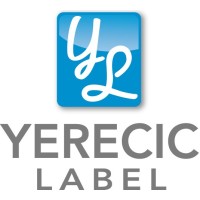 2025 Sustainability in the Food Industry
2025 Sustainability in the Food IndustryYerecic Label
New Kensington, Pennsylvania, Yerecic Label
Read MoreYerecic Label is a recognized leader in sustainability within the food industry, committed to innovation and continuous improvement. The company’s involvement with the Association of Plastic Recyclers contributes to developing better recycling protocols and label compatibility with PET recycling streams, helping labels align with industry standards and support the circular economy.
A key innovation is the LabelLab! at its Pittsburgh headquarters, enabling Yerecic Label to test label materials’ impact on the PET recycling process, advancing more sustainable labeling solutions.
Yerecic Label’s SustainLabel! Preferred Design Recognition label construction meets APR’s stringent testing standards, allowing for increased recycled PET yield and promoting packaging solutions that do not negatively impact recycling efforts.
This construction provides customers with environmentally responsible packaging options that meet high recycling standards.
Yerecic Label’s commitment is further reflected in its Sustainable Green Printing Partnership certification at its Pittsburgh facility, which tracks key environmental metrics such as energy use, carbon emissions, water use and waste diversion.
The company is working toward achieving SGP certification at its Arizona facility. Through the certification, Yerecic Label has initiated three Continuous Improvement Projects to date:
- 2023 – Focused on increasing recycled PET yield by utilizing the SustainLabel! label construction, supporting a circular economy;
- 2024 – Transitioned to wash-away adhesives for film labels applied to PET packaging, an innovation recognized by APR for improving recyclability; and
- 2025 – Pre-qualifying APR-recognized label constructions with How2Recycle, assisting customers with recycling friendly labeling.
Internally, Yerecic Label has implemented several sustainability initiatives, including water bottle refill stations to track plastic savings, a kitchen composter to divert food waste and updated recycling signage to improve sorting.
The company has maintained a 99 percent landfill diversion rate at its Pittsburgh facility and is working to achieve the same at its Arizona location.
These ongoing efforts showcase Yerecic Label’s dedication to reducing its environmental footprint and advancing sustainable practices across the food industry. Through leadership, collaboration and measurable progress, Yerecic Label continues to shape a greener, more resilient food industry.
-
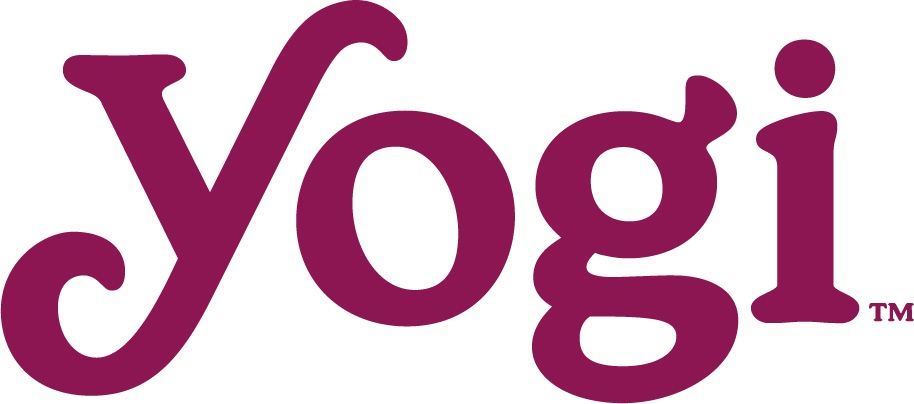 2025 Sustainability in the Food Industry
2025 Sustainability in the Food IndustryYogi
Eugene, Oregon, Yogi
Read MoreYogi’s approach to sustainability is grounded in the union of nature and human flourishing. It starts with the soil. Since 2021, the company has launched 13 regenerative agricultural projects worldwide, helping to implement the most sustainable farming practices possible.
These projects have impacted 4,073 farmers and improved 5,312 acres of farmland.
Each intervention is site-specific, rooted in individual community needs. Built on transparent, long-term relationships, Yogi empowers growers to build resilience in the ways only they know how.
Agroforestry projects in Madagascar and Guatemala are planting 60,000 trees, focusing on productive species that contribute to farmers’ economic well-being. Crop diversification and intercropping projects introduced more than 400,000 lemongrass splits on a tea plantation in Rwanda, as well as 325 kitchen gardens in Nepal.
All of this comes in addition to Yogi’s commitment to organic agriculture; Every ingredient it sources that can attain organic certification is certified. A full 59 percent of ingredients earned an additional social certification (e.g., Rainforest Alliance, etc.) and 90 percent are traceable to origin.
Yogi sources its tea bags from suppliers that have provided statements that they use a non-heat sealable filtration paper made from a select blend of high-quality manila hemp (abaca) fibers or bamboo fibers and wood pulp.
The filtration paper suppliers also provide statements that the filtration paper does not contain any intentionally added polyfluoroalkyl substances (PFASs or PFCs) and is oxygen-bleached using a natural process free of chemicals or toxins.
Improvements in packaging composition across the global company are saving 97,223 pounds of plastic annually and 155,943 pounds of paper annually.
Yogi’s carbon footprint has been receding since it started measuring three years ago. According to its best estimates, Yogi emitted:
- 2022 – 70,291 tons CO2e
- 2023 – 69,764 tons CO2e
- 2024 – 66,441 tons CO2e
B Corp-certified business practices encompass facilities management, human resources and customer relations. From its home in the world’s first LEED-certified tea production facility, Yogi is proud to provide teas that embody sustainability from seed to savor.
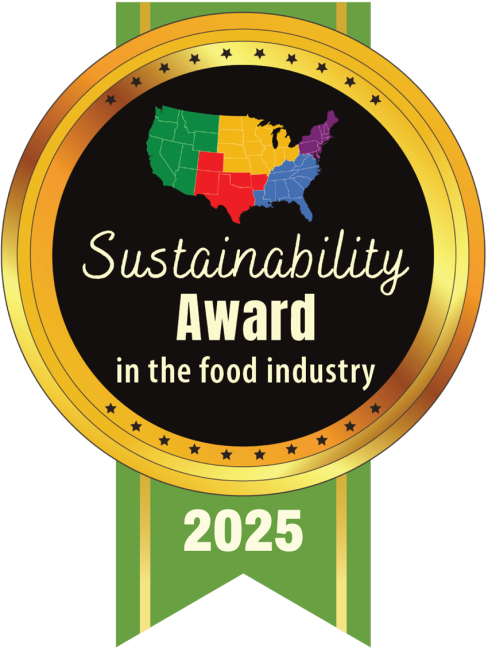
Presented by The Shelby-Griffin Report
The Shelby Report is the grocery industry’s leading news source, serving the food supply chain since 1967. With decades of in-depth journalism and strategic partnerships with NGA and FMI, we are dedicated to educating and informing the industry. We are proud to present this award to honor sustainability leaders.
